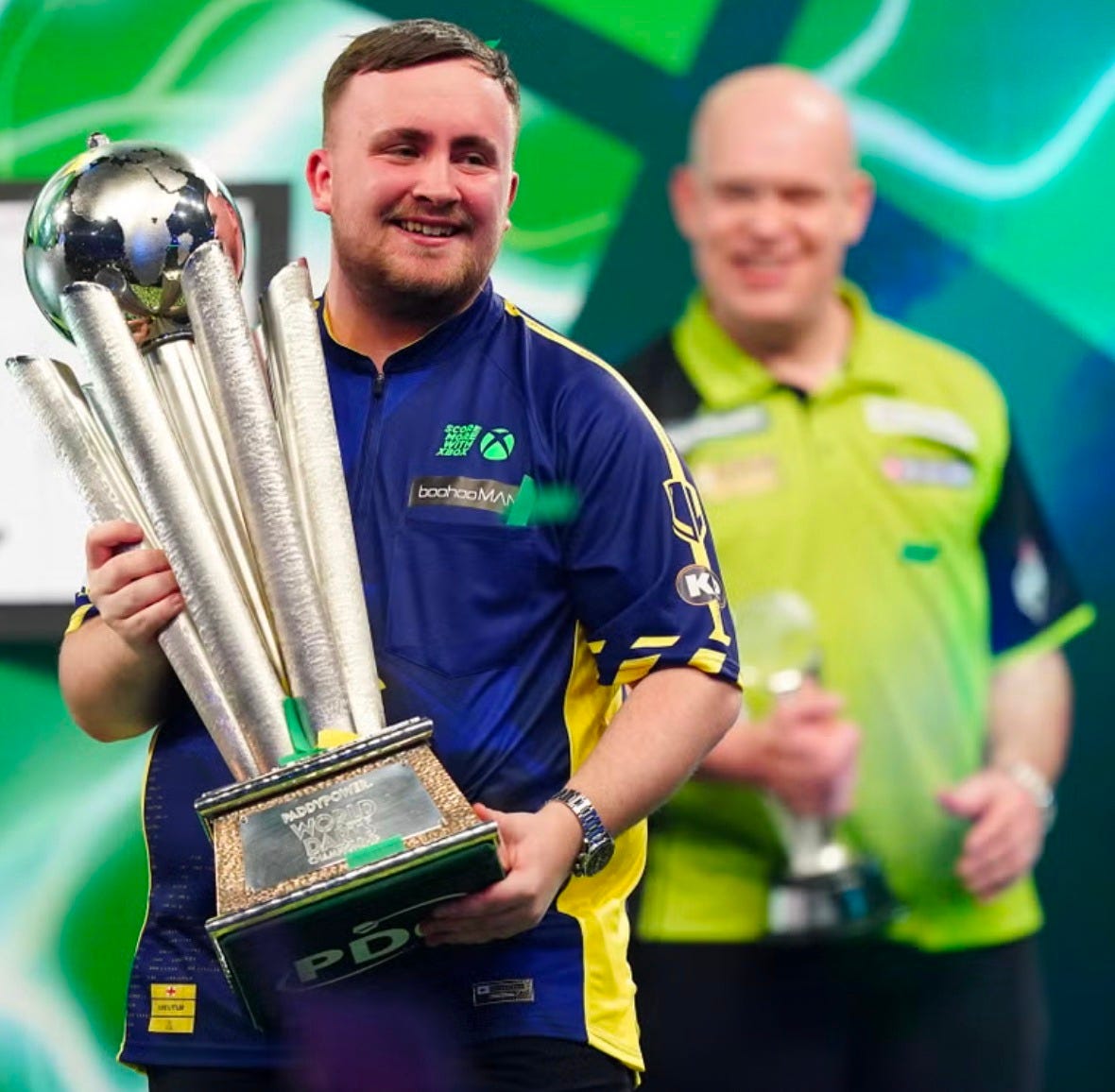Teenage kicks: what reaching the top as a teen says about your future prospects
Luke Littler became the PDC darts world champion age 17 this month, and is changing the face of his sport. Lessons from other sports suggest glory so young can be good
Do you think you can forecast some of the events that will unfold in the world of sport in 2025? If so, and you’re interested in a cash prize, signed books and a free subscription to all the content on this site, for as long as it exists, then enter the quiz that appeared in last Friday’s post.
Today I’m delving into three topical subjects, starting with sporting achievement at the highest level at a young age, and what that might suggest about how a sportsperson’s career will pan out.
Then I’ll be revisiting an idea that many of you will have seen me write or talk about before: that each goal scored in the Premier League is worth a point, give or take, in pretty much every season.
For clubs where that is not true, the number of goals or lack of them tell you something about other strengths or weaknesses at that club. This current Premier League season is very much turning out to be “a goal is worth a point” season.
Last but not least, Liverpool’s 2-2 draw with Manchester United on Sunday was notable for multiple things, not least how United actually turned up.
It was also notable for a poor game by Liverpool’s Trent Alexander-Arnold against a backdrop of reports that he will be moving as a free agent to Real Madrid this summer.
He’s far from the only star name who, as things stand, are able to negotiate free end-of-season moves to other clubs, and I’ll be listing more of them.
Becoming the world’s best as a teenager: what does history tell us?
Luke Littler’s victory in the PDC World Darts Championship on 3 January at Alexandra Palace, aged 17, cemented his status as one of the most exciting and influential teenagers in modern sport.
He won £500,000 prize money ($627,000 / €603,000) for that one event, taking his prize money earnings in his short career past £1.5m, with many hundreds of thousands of pounds more earned via endorsements and sponsorships.
The surge in interest in darts, solely because of him, has been phenomenal, and described as “Littlermania”, or a new era in the sport.
Littler’s victory against Michael van Gerwen in the world final came just a few weeks after he was named the 2024 BBC Young Sports Personality of the Year as he also finished as runner-up in the main SPOTY contest behind Olympic 800m gold medal winner Keely Hodgkinson. That was largely because he was the world championship runner-up last year, age 16, and then had a massive impact on the professional tour in 2024.
Famously, Littler first played darts at 18 months old, scored his first 180 aged six, and scored his first nine-dart finish at 13. He’s astoundingly good at 180s, and double 10 finishes.
One other mark of Littler’s achievement - he turns 18 on 21 January - is that the previous youngest winner of the darts world championship was Van Gerwen, who was 24 when he first won in 2014.
So what does winning the biggest event while young in other sports tell us? We’ll start with football.





